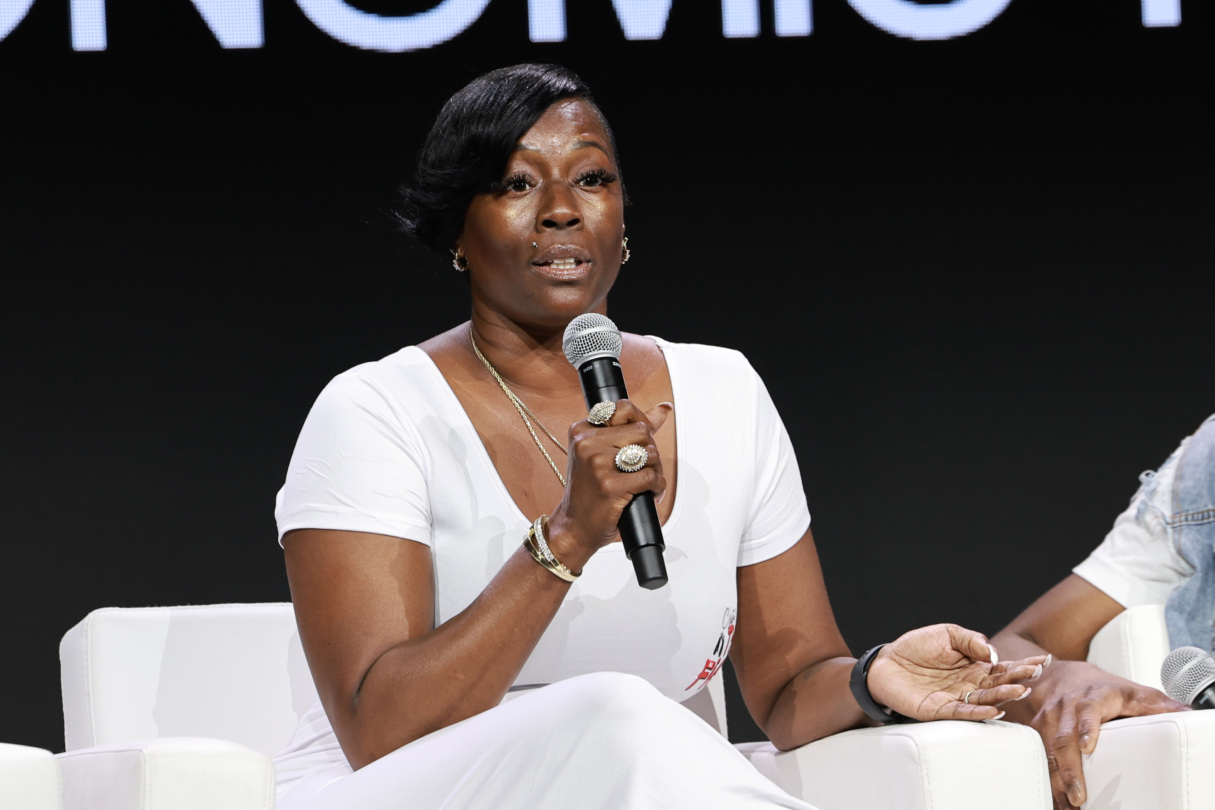Crystal Clear
Plus: News about the president-elect’s criminal cases. 🗳️

Earlier this year, a Texas appeals court threw out the wrongful conviction of Crystal Mason, who had been accused of illegal voting. It was the right call: Bipartisan legal experts said she never should have been charged in the first place. But now Mason has to fight for justice yet again.
The backstory: In 2016, Mason went to vote in Tarrant County and found she wasn’t on the rolls. She followed the advice of a poll worker and used a provisional ballot instead. Texas election officials looked into it, determined Mason was ineligible to vote, and rejected the provisional ballot.
So the state’s election safeguards worked as intended. Provisional ballots are designed for circumstances exactly like this, when a voter’s eligibility is in question. Mason, believing she was eligible, had made an honest mistake, and her vote was never counted. Nevertheless, she was prosecuted, convicted, and sentenced to five years in prison.
That outcome was a miscarriage of justice. It was corrected when the appeals court acquitted Mason in March. (The appeals court said prosecutors didn’t show that Mason knew she was ineligible to vote, a required element for a conviction.) But prosecutors then asked the state’s highest criminal court to review the case.
This week, States United brought together former state and federal prosecutors of both parties to argue that Mason’s acquittal should stand. Continuing to prosecute Crystal Mason “would serve neither election integrity nor criminal justice,” they wrote. Voters should never be charged, much less convicted, for good-faith mistakes.
Image: Crystal Mason speaking at the Essence Festival of Culture in July. (Arturo Holmes/Getty Images for Essence)
This Week in Democracy
- State and local officials have begun certifying the results of the November elections in states where vote-counting is done. (In some places, counting is still ongoing.) Each state has its own laws that set deadlines to finish counting and certify the results. Certification is a mandatory step in the election process—one that President-elect Donald Trump attempted to disrupt after he lost the 2020 election.
- 149 Election Deniers won elections for statewide or congressional office, according to the latest tally from States United Action. As of now, the next Congress will include 157 Election Deniers—14 fewer than before. You can find out where they will hold office in 2025 at ElectionDeniers.org.
➡️ EXPLORE: ElectionDeniers.org
- Justice Department Special Counsel Jack Smith is planning to resign before Trump takes office in January, according to reports. Smith will deliver a report of his findings to U.S. Attorney General Merrick Garland, who will decide whether to make any of it public.
- New York Supreme Court Justice Juan Merchan agreed to delay the deadlines in the criminal hush money case against Trump. State prosecutors asked for the delay, citing the “unprecedented circumstances” of Trump’s election. Prosecutors have until Nov. 19 to tell Merchan how they want to proceed. Trump’s sentencing remains scheduled for Nov. 26.
State of the States
In Georgia, the election interference case against former White House Chief of Staff Mark Meadows will stay in state court. The U.S. Supreme Court on Tuesday declined to hear Meadows’s appeal attempting to move the case to federal court. Meadows faces charges for his role in the plot to overturn the results of the 2020 presidential election in Georgia.
In Pennsylvania, the race for U.S. Senate between incumbent Sen. Bob Casey Jr. and businessman Dave McCormick is headed for a recount. The Pennsylvania Department of State, headed by Secretary Al Schmidt, announced on Wednesday that McCormick led by less than 0.5%, a margin that triggers an automatic recount under state law. Each of the state’s 67 counties must begin the recount by Nov. 20 and must finish by noon on Nov. 26.